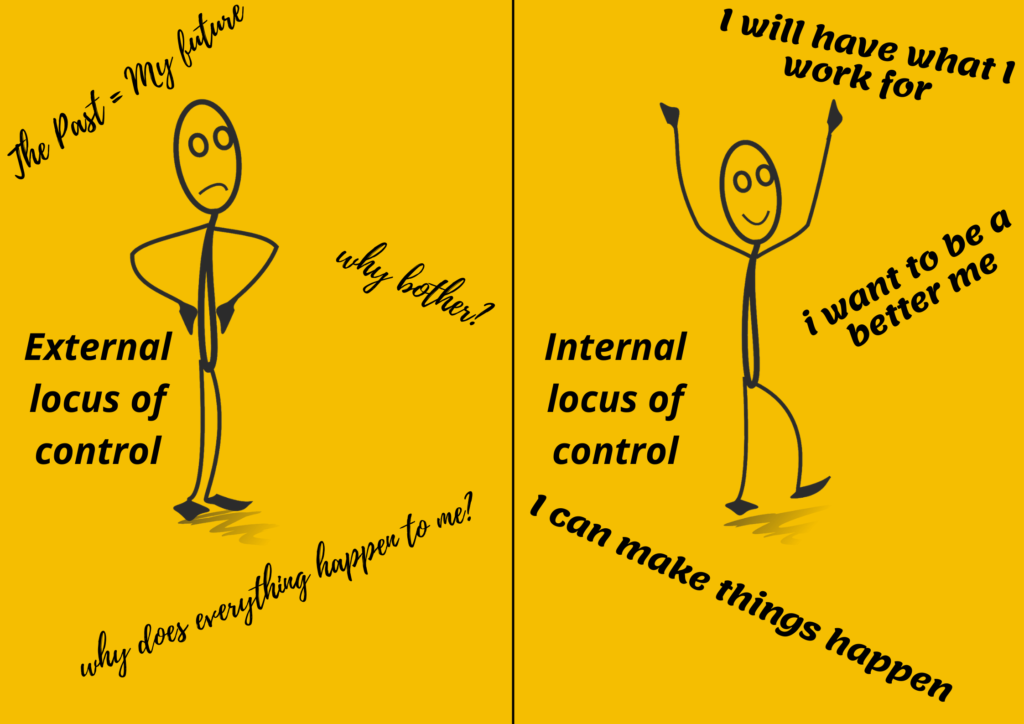As the environment around you changes, you can either attribute success and failures to things you have control over, or to forces outside your influence. The orientation you choose has a deep impact on your long-term success. This is known as the locus of control framework.
What is Locus of Control? Click To TweetThe Principle of ‘Locus of Control’ was coined by Julian Rotter (1954), an American psychologist where he investigated how people’s behaviours and attitudes affected the outcomes of their lives.
External Locus of Control
For a lot of people, things happen to them. They feel that most things are beyond their control. They find it difficult to acknowledge responsibility for their lives and can go to the extent of blaming other people for their problems. This is what is known as the external locus of control.
In this case, individuals believe that they are passive to the events and things that happen to them in life and accept their circumstances as they are. If they feel they’ve succeeded in something, they’ll be more likely to attribute this to luck as supposed to their own skill/talent. People who operate from an external locus of control tend to subscribe to the idea that their past equals their future; that they are victims in life.
This doesn’t mean, whatsoever, that these individuals are consciously and purposefully reflecting this mindset, rather, they’re people who have faced hardship in life, struck by failures, illnesses, loss and rejection and just expect, by default, for these things to happen again to them.
Internal Locus of Control
The internal locus of control breeds a very different attitude in people; they believe that they make things happen in life and that they can choose how they respond to the results and outcomes.
These individuals see themselves as being in control of their future and acknowledge that the choices they make will lead to their success or failure. They aren’t negatively affected by people judging them, disliking them or misinterpreting them.
In recent decades, locus of control has become a more widely recognized and discussed concept in the world of education, entrepreneurship, leadership and career development.
It’s true, in life things will happen to us, but our responses to these situations are what transform our lives for the better or worse.
As life coaches our role is to coach people with this default state of mind (external locus of control) into a greater realization (Internal Locus of Control) of what they’re capable of, who they are and how much power they have in their own life outcomes.
Once their faith and action start walking hand in hand, individuals are going to see the outcomes in their lives that they always wanted to see.

